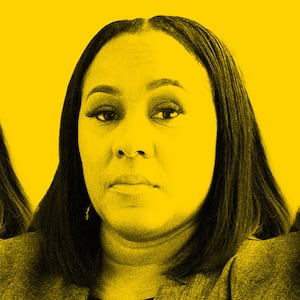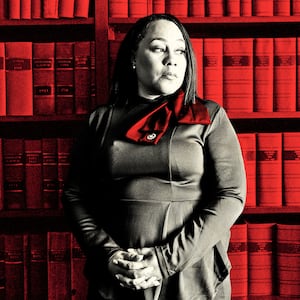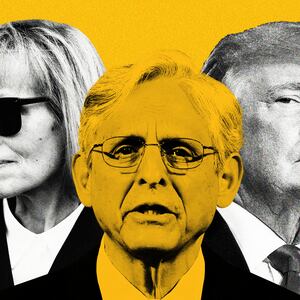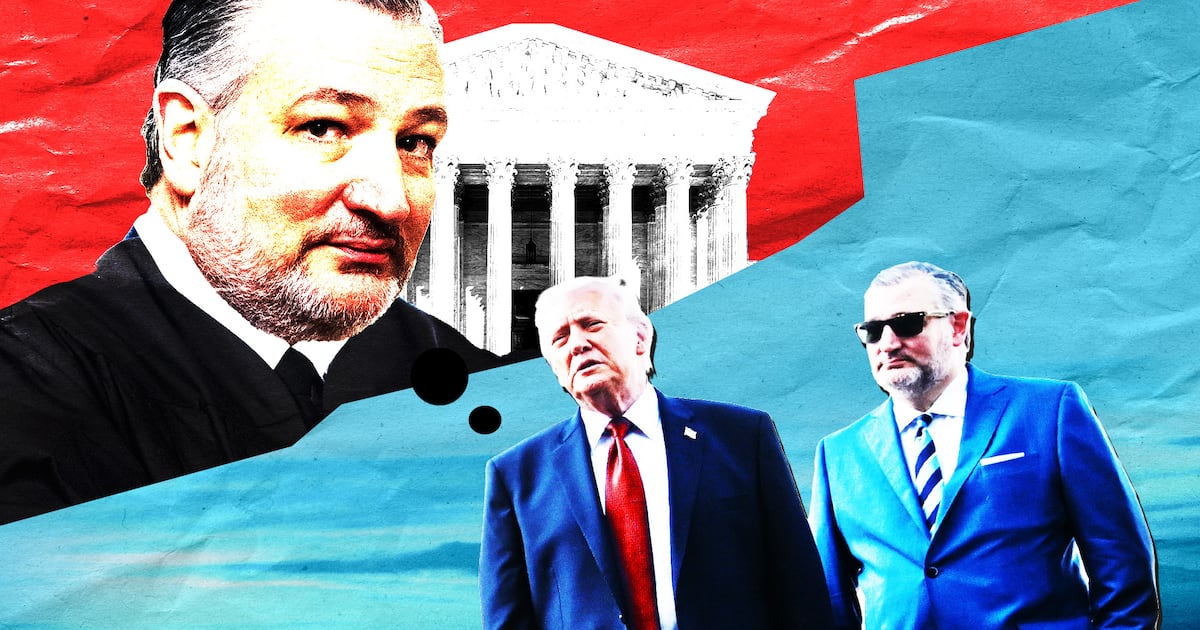As we await the D.C. Circuit Court of Appeals ruling on whether former President Donald J. Trump is immune from prosecution, the former president has been clarifying publicly exactly why he thinks he should win the case and what he really wants.
Not content to wait quietly for the federal appeals court to rule on his claim that “presidential immunity” requires the dismissal of the criminal charges brought against him by the Department of Justice via Special Counsel Jack Smith, Trump on social media and at a rally asserted the urgency and importance of granting him immunity from prosecution with a few analogies to former commanders-in-chief, police, and even pedophile priests.
In his social media post Trump analogized himself to police, writing: “YOU CAN’T STOP POLICE FROM DOING THE JOB OF STRONG & EFFECTIVE CRIME PREVENTION BECAUSE YOU WANT TO GUARD AGAINST THE OCCASIONAL ‘ROGUE COP’ OR ‘BAD APPLE,’ SOMETIMES YOU JUST HAVE TO LIVE WITH ‘GREAT BUT SLIGHTLY IMPERFECT.’”
He then expanded on his views at a rally in New Hampshire, where he claimed that President Harry Truman might never have used the atomic bomb to kill tens of thousands of civilians in the Japanese cities of Hiroshima and Nagasaki during World War II—because Truman would have feared being prosecuted by his political opponents. Trump reiterated his assertion that police are given immunity so they can do their jobs and even seemed to suggest that pedophile priests are similarly protected for the same reasons.
These sorts of analogies are legally flawed and whether by intent or inadvertent ignorance contribute to confusion over the concept of immunity.
Let’s make it simple: Presidents, police officers, and pedophile priests are not immune from criminal prosecution. No court has ever ruled that they are. Nor does the Constitution grant such immunity.
Trump appears to think that the doctrine of qualified immunity—which is a form of immunity that protects government officials, including police, judges, legislators, and prosecutors, from being sued civilly in lawsuits over the performance of their duties—also protects these categories of officials from criminal prosecutions. But he’s wrong. Qualified immunity does not protect anyone from criminal prosecutions.
Quite to the contrary, President Richard M. Nixon resigned from the presidency because he feared that an indictment was imminent for his role in the Watergate case. His successor, President Gerald R. Ford, pardoned Nixon precisely because Nixon was not immune from criminal prosecution. Police do get prosecuted for being “rogue cops” and priests who sexually abuse children are prosecuted for their crimes. That’s because such actions like obstructing justice, lying to Congress and sexually abusing children are not part of anybody’s job description.
Sure, officials—and priests, too—who are prosecuted for crimes are free to mount legal defenses that amount to saying they were just “doing their jobs” but that is very different than claiming that just because you have a job means nothing you do on your job can be criminal.
Just ask notorious murderer Derek Chauvin, the police officer convicted for killing George Floyd. Chauvin’s defense was that he was “just doing his job”—but the jury didn’t buy it. However, if police had the kind of immunity that Trump thinks he should have—Chauvin never would have been prosecuted at all.
What Trump wants is immunity from being scrutinized at all. Like an emperor who decrees that none shall be allowed to gaze directly upon him, Trump wants all his actions to be immune from accountability.
He also argues that without such impunity, presidents would be unable to do their jobs. Holding aside the obvious counterargument that presidents have never had this immunity, but all performed their jobs, Trump misses the fact that all of these officials already have a form of immunity from criminal prosecution. It’s a protection that arises from the image we have in society of officials, prosecutors and priests as being benevolent—an unspoken social contract where we like to believe that public servants are doing an important service that entitles them to be cut a break when they make mistakes. It amounts to a bias in favor of certain types of power.
Since Trump leaned heavily into the “rogue cop” analogy, it’s useful to look at just how dangerous is the pro-police bias in society that serves as an informal immunity for police. The data on police killings show that this bias is a deadly one for citizens and for justice.
In a Pulitzer Prize-winning series of stories, The Washington Post reported in 2015 that the staggering death toll from thousands of police shootings over 10 years had resulted in only 54 officers being charged. And a New York Times story in 2021 found that over a five-year period police officers killed motorists at a rate of more than one per week. These were “drivers or passengers not wielding a gun or a knife, or under pursuit for a violent crime.” These killings—about 400—resulted in only five criminal convictions but about $125 million in payouts from civil lawsuits for wrongful death.
Far more than any doctrine of immunity, this implicit bias is what protects the wrongdoing by police. Georgia Ferrell, the mother of Jonathan Ferrell, who was killed by police, put it well: “Society has put it into our heads that the officer is always right—that has to change.”
This kind of built-in bias for government officials from criminal prosecution is also enhanced by the fact that prosecutors—from U.S. Attorney General Merrick Garland to local district attorneys—may be reluctant to commence criminal proceedings against any public official, because they are averse to the intense public scrutiny such a case may bring.
In Garland’s case, his fear of being criticized as a partisan may have delayed appointing a special counsel until publicly disclosed evidence about Trump’s election interference had grown overwhelming—thanks to the work of the Jan. 6 Committee.
The Georgia prosecution of Trump by Fani Willis highlights the kind of unwelcome scrutiny taking on a high-profile case can bring—as Willis is now embroiled in a controversy over allegations that the investigation is somehow compromised by her alleged romantic relationship with a prosecutor she hired to work on the case, Nathan Wade.
But Trump is not content to rest his fate upon the unspoken and often unseen biases that have protected the powerful from accountability. No, he wants to say the quiet part out loud by making it the law of the land that he cannot be prosecuted. This is the kind of dark American future Donald J. Trump seeks to keep himself out of jail.









